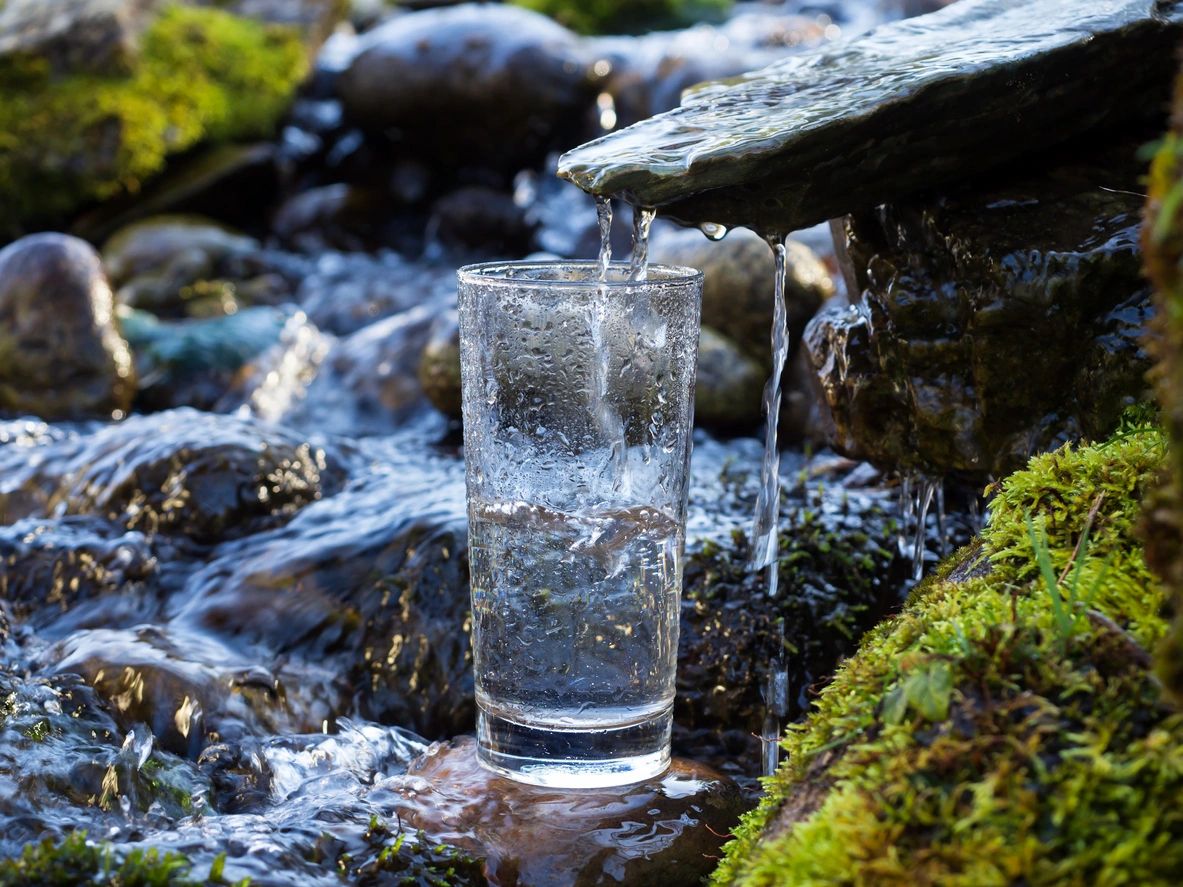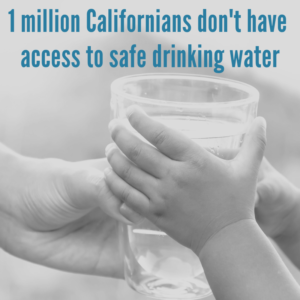
Missed our latest webinar? We’ve got you covered! We sat down with a panel of experts to talk about what California’s doing to ensure access to safe, clean drinking water for all our residents. Over 1 million Californians don’t have access to clean drinking water, and many rural (and some urban and suburban) communities are concerned about both the safety of the water flowing from their taps, and if water will flow from their taps at all. As we experience more frequent and intense droughts, these concerns will only become more urgent, and serious efforts are underway to find short- and long-term solutions.
Meet the Experts
Our panel included Castulo Estrada, who works at the Coachella Valley Water District and is a local from birth. Estrada ran for a seat at the Water District to make sure small community needs were a focal point, and he also works on water in his day job. Maria Kennedy of Kennedy Communications works directly with rural and urban communities in southeast L.A. County whose proximity to large water agencies does not necessarily mean they are served by these agencies, or have access to clean drinking water. They’re often overseen by small municipal water companies, and struggle with the same issues as many, more visible, rural communities in the Central Valley. Ryan Flaherty works at Sustainable Conservation on our clean water and replenishment initiatives, including with the dairy industry on solutions for nitrate contamination of groundwater, and with agriculture on groundwater recharge. The panel was moderated by Alf Brandt, General Counsel to California State Assembly Speaker Rendon, whose wealth of California water knowledge guided a deep and meaningful discussion.
Setting the Stage
Brandt opened the panel by setting the stage in terms of what California’s done at the state level to ensure clean and safe drinking water for all, including Proposition 1 in 2014 and SB 200 – known as the Safe & Affordable Drinking Water Fund – last year. But, there’s more work to be done to ensure that legislation and policy make meaningful change on the ground for our communities. Our experts addressed questions concerning the biggest challenges facing clean water for all, how it is that 1 million people do not have access to clean water in the 5th largest economy in the world, and who’s responsible for ensuring the human right to clean water.
Science, Collaboration, Coalition-Building
 Estrada tapped his expertise in the Coachella Valley to speak on the affluence divide between the rural agriculture and tourism industries in the area, and noted that it’ll take community drive, non-profit advocacy, public agency willingness and legislative toolkits to ensure everyone has access to clean water. It’s everyone’s responsibility to do this work, and we also need to consider the affordability threshold. Legislation like SB 200, if invested and implemented wisely, can be a model for how increased funding can drive substantial change.
Estrada tapped his expertise in the Coachella Valley to speak on the affluence divide between the rural agriculture and tourism industries in the area, and noted that it’ll take community drive, non-profit advocacy, public agency willingness and legislative toolkits to ensure everyone has access to clean water. It’s everyone’s responsibility to do this work, and we also need to consider the affordability threshold. Legislation like SB 200, if invested and implemented wisely, can be a model for how increased funding can drive substantial change.
Kennedy spoke to her years of experience on the ground in southeast L.A. County, citing the funding hurdle as well as California’s long history of complex and fiercely contested water rights. Small, low-income communities often have to navigate these legalities on their own, and the system doesn’t serve them. Small community assistance requires our persistence, because the first thing we have to do is build trust. We need to show that we don’t have hidden agendas, and we need to work with the community, not speak for them. We need to engage larger water agencies to help smaller ones, and community education is a part of that, too.
Flaherty detailed his work at Sustainable Conservation, and how engaging agriculture is part of the bigger sustainability picture. With a framework of policy and funding in place, we need to engage farmers at the local level first to design solutions that meet their needs, and then scale those solutions industry-wide through coalitions and collaboration. We also need to disseminate science and information equitably. Large farming entities are the most visible, but California thrives because of small family and individual farms, many of which operate closer to a bottom line. Access is key to addressing aquifer overdraft and contamination, and ensuring our farmers can grow the food we eat.
Want to hear more? You can read a play-by-play on Twitter, or watch the recording in its entirety here – including a great Q&A! Thanks so much to our panelists for taking the time to talk with us, and stay tuned for our next event.
You Keep us Working
We’re hard at work protecting what matters most in California, and that means clean water wins for our communities, farms and the environment. With your support, we can build a bright future for all in ways that are just, resilient and make economic sense.
We believe in the power of relationships to reveal creative strategies that protect the natural resources on which we all depend. Let’s explore new ways to stick together in support of a healthy California. Connect with us!
